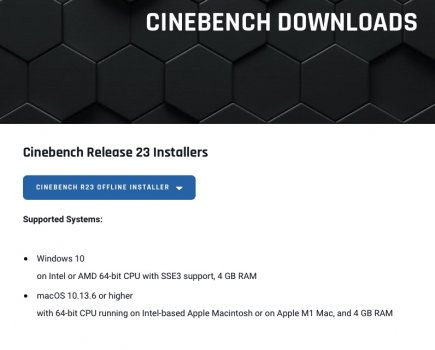
Just an emulated result but according to China, 12900K with 6 big cores(3.0ghz) and 8 small cores(2.4ghz) used only 35W of power usage and the Cinebench result was around 14300 which is similar to M1 Max's result.
If this is true, then Intel is able to make very efficient CPU with x86 architecture and 7nm which might be very threatening result to Apple Silicon. But still, it's just an emulated result and Intel has more small cores but if it's true, I dont think x86 is the main bottleneck for having ARM's efficient power consumption anymore.
Yes, we need to wait and see how Alder Lake mobile CPU performs but it seems Intel might be able to make M1 and M1 Pro/Max grade CPU with similar power consumption.
Thoughts?
Last edited:



